Jean van de Velde Interview
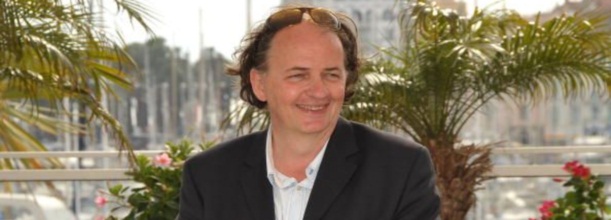
Snowed into his resident Holland and unable to meet face to face, Jean van de Velde greeted us on the phone to discuss his most recent feature. Initially titled as Wit Light, the movie was heavily edited before being rereleased to a wider audience as The Silent Army. No longer accepted as an original screenplay by the Acadamy, The Silent Army is nevertheless a hauntingly visceral piece of work; achieving a difficult balance between education and entertainment without ever preaching to its audience.
I really enjoyed The Silent Army – if enjoyed is the right word – what exactly lead you to direct it?
Of course, I was born in central east Africa and I got in touch with Marco [Borsato], who was involved with War Child and wanted to make a movie about it. He liked my previous movies and asked if I’d like to make a movie about the child soldiers in Africa. I knew about the existence of child soldiers and I offered to write a screenplay. Marco was able to part finance the movie and the more I researched, the more I wanted to direct this movie. We knew that hardly anyone is going to want to watch the movie so we decided to use a genre formula to tell the story as a fast paced adventure.
In addition to addressing the child story and adventure elements, I also wanted to get my own personal ideas about Africa into the story. It’s about poverty, the balance of wealth and the children already having lived a third of their lives. I wanted to get into the heart of the child actor rather than just make a documentary. With a movie, with drama, you can identify with the situation and raise awareness while also drawing attention to how we see Africa in the Western World.

Just how difficult was it to get the performances you needed from your child cast? Andrew Kintu – who plays Abu – was just phenomenal.
We were looking for a kid who would be the heart and soul of the movie. Scripting took time and it was some months before I was able to cast the movie. I got in touch with Hope [Azeda], who had worked on Shooting Dogs, and we arranged to meet thirty or forty boys of all ages in a period of two days. None of the kids had any experience at all, nor did the adults have much experience. Five of the children around Andrew’s age but it was Andrew Kintu who really drew my attention. I liked him, he was clever and he was able to open his heart. They all were.
The girl with the grenade, she came in with her father – who would go on to play the man who was in the wheelchair – and she was very shy sitting in the waiting room and I loved that. I only had one performance, I did not have a number of takes because they were not actors. Two days I was casting, I have never finished casting so quickly.
Do you think you’ll be working with Marco Borsato again in the future or was this just a stand-alone passion piece?
Marco is a very special guy but his career is in singing, he is by far the most popular singer in Holland. He was doing this work for War Child and he always had this dream of making a movie about it. Until we met, he never had the opportunity to make this movie and realise that dream. He said to me “I don’t wan’t to act but I wan’t to be in this movie”. I don’t think he will ever act again to be honest, but he was so dedicated to making this movie.

You mentioned before that Abby Mukiibi Nkaaga was the only experienced member of the cast. Had you seen the Last King of Scotland when you cast the role of Michel Obeke?
I read the book a long, long time ago and when I read it I thought, “I’m always looking to do a film in Africa”. But when I realised that the novelist was a former screenwriter for the BBC I realised that the rights were had probably been sold already.
When I showed The Silent Army in Uganda, a lot of people compared it to The Last King of Scotland. One thing I realised was that because I knew the background of Africa and shot The Silent Army using all the local dialects, the Ugandans I showed it to really felt like it was their movie. One problem they had with the Last King of Scotland was that it hadn’t felt personal to them.

What can you tell us about your next feature, All Stars 2: Old Stars?
I made a movie called All Stars in 1997, it was remade in England. All these actors are now forty years old so I’m making a kind of SEVEN UP or 21 UP, but fiction. The first one was turned into a TV series but the actors are more famous now so it would be impossible to get them together to make another 13 or 26 episodes so we are making another movie.
I today finished my first draft, but I am going to have to write another draft and speak to the producer about what direction to take. One thing that is very say is that one of the young men I worked with on All Stars has committed suicide. I have a week or two to decide what to do because the film is already funded. I hope not to only make the movie but make it as a kind of tribute.
Just one last question, I remember reading that you turned down the offer to direct Deuce Bigalow: European Gigolo, is there any truth in that?
[Laughs] Yes, that’s true. I had the strangest meetings with the producer and I met with Rob Schneider. I read the screenplay and I had some ideas about it because, to be honest, the first one was such out-of-the-box comedy and I really liked it.
But there were some things that I didn’t connect to – the thing where her nose was a penis, I didn’t buy that. If it was “Revenge of the Plastic Surgeon” then sure, I could understand that and make comedy out of it. I raised the issue at the conference only to realise that they were looking for a scapegoat, a front who could be credited as director while Schneider directer his movie. I have better things to do with my time.
That he does. For all of their good intentions, The Silent Army is more than the sum of its parts. Taking an appalling but important subject matter, a Dutch pop sensation and a group of delightfully talented African children, and crafting such a personal, entertaining and educational piece of cinema, Jean van de Velde is far more than just a studio-sating front.

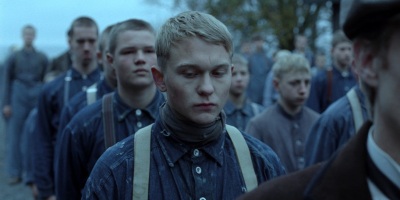
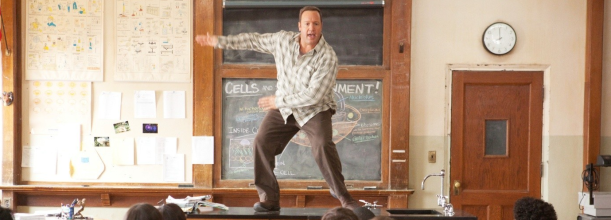
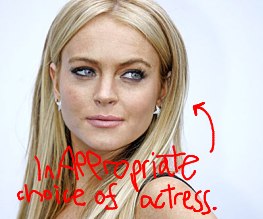
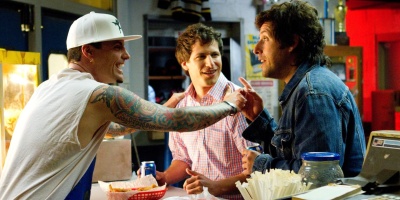
Recent Comments